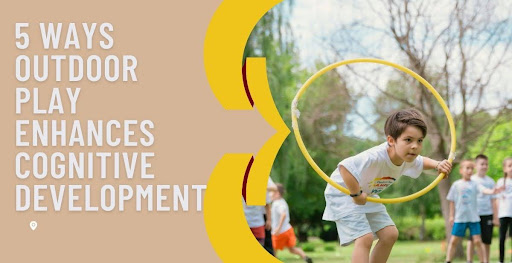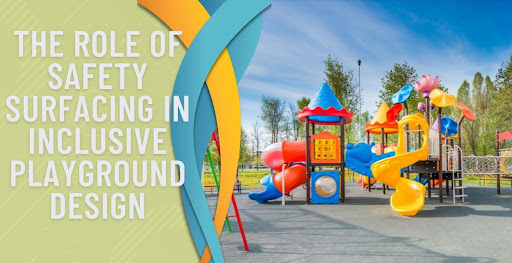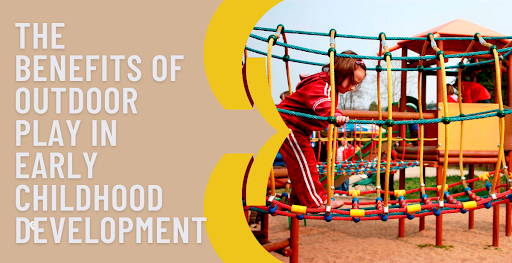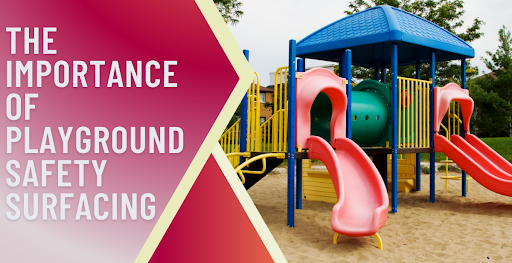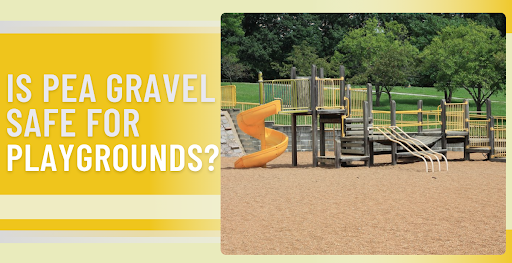How Old Does A Child Have To Be To Play On The Playground
Learn about park safety rules, age restrictions, potential risks, and legal requirements to keep play safe and developmentally appropriate.

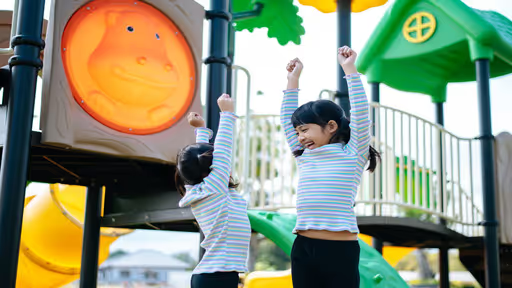
Taking your children out to the park can be one of life's little joys, watching them explore, run around in nature, and play with their peers. But have you ever wondered at what age group children are allowed onto playground equipment?
It is a question that parents regularly ask when trying to decide which activities are appropriate for their child's development stage. In this blog post, we will explore how old a child has to be before they can enjoy the park without any danger or risk of injury.
With detailed advice on safety implications and developmental limitations, plus information about legal regulations – we're here to answer all your questions!
Understanding Playground Safety Regulations
Playground safety regulations ensure our children have a secure and enjoyable experience when they take a break from screen time to explore the great outdoors. These rules, which may initially seem tedious, are vital to preventing accidents and injuries that could dampen the fun.
Educating ourselves on these guidelines makes us responsible guardians and active participants in our little ones' adventures. In addition, compliance with playground safety regulations creates an environment that fosters laughter, teamwork and wholesome memories.
Your awareness and commitment to these principles foster a sense of security, helping children confidently explore and conquer new physical challenges while they play. So, let's come together and familiarize ourselves with these essential guidelines, all for the sake of maintaining the magic of the playground!
Three Large Groups of Children

Playground regulations are divided into three main age groups:
- toddlers
- children aged 2 to 5
- those aged 6 and older
For toddlers (children under two years old), playgrounds with soft surfaces are the safest option as their bodies are still developing. Furthermore, it is advisable they always wear protective clothing while playing outdoors and be accompanied by an adult or responsible guardian.
Children aged 2 to 5 this is generally the age group that has the most freedom of exploration on playgrounds. As their bodies are still developing, it is important to ensure adults closely monitor them and do not attempt difficult equipment without supervision.
Finally, for those aged 6 and older, playgrounds are great for developing physical abilities and boosting self-confidence. At this age, they can explore more challenging, age-appropriate equipment, such as monkey bars or rock climbing walls, with adult supervision.
Legal Regulations
In the United States, several laws regulate how playgrounds should be designed, constructed, and operated to keep children safe. The American Society for Testing and Materials (ASTM) develops safety standards according to the age group of the children who will use the playground equipment.
The ASTM also advises that there should be no hazards in areas where children play, such as rusty nails, broken glass or other sharp objects, and adequate falling surface protection to absorb a fall.
In addition, the Consumer Product Safety Commission (CPSC) develops regulations covering the design and construction of playground equipment and provides detailed guidance on ensuring safe operation.
Appropriate Games For Children Of Different Ages

Finding the perfect game for your child can be a delightful journey that entertains them and boosts their development. Children of different age groups require varying levels of engagement and challenge in their games to keep them captivated.
For toddlers and preschool-aged children, interactive play that focus on basic skills, such as shape and colour recognition or simple puzzles, are an excellent way to engage their curious minds while honing their motor skills. As other kids grow, game complexity can increase to match their cognitive capabilities.
Elementary-aged children might enjoy strategy and problem-solving games that require teamwork and provide learning opportunities from their experiences. In addition, teenagers can benefit from games that encourage critical thinking, creativity, and social interaction and often have the added advantage of helping them navigate the complexities of adolescence.
Ultimately, the goal is to select games that balance entertainment and valuable lessons, creating memorable bonding experiences for the entire family.
The Benefits Of Outdoor Play
There's something truly magical about the great outdoors that can spark a sense of adventure and curiosity in all of us. Outdoor play, in particular, has a myriad of benefits for both children and adults alike.
It not only aids in developing physical abilities such as balance, strength, and coordination but also nurtures emotions, social interaction, and cognitive growth. In addition, stepping outside, breathing in the fresh air and soaking up some sunshine can significantly improve mental health and reduce stress levels.
Additionally, being surrounded by nature allows us to tap into our creative minds, opening a world of possibilities for imaginative play and problem-solving. So, next time you find yourself craving an escape from the digital screens and the hustle of daily life, don't hesitate to embrace the wonders of outdoor play and rediscover its joys.
Tips For Keeping Children Safe On The Playground
Heading out to the playground can be an enjoyable and exciting event for children as they explore, climb, and swing with their friends. However, as parents and caregivers, we must proactively ensure their safety during playtime.
First and foremost, make sure to choose age-appropriate equipment and appropriate play areas to avoid potential accidents or injuries. Encourage your child to engage in proper playground etiquette, such as taking turns on equipment, using gentle hands, and avoiding rough play. Regularly inspect the playground for hazardous conditions, such as broken equipment or wet surfaces, that could cause slips or falls.
Finally, keep a watchful eye on your child while discussing the importance of safety with them, so they can grow to become responsible and vigilant individuals on the playground. By following these simple tips, you can help create a secure and enjoyable play environment filled with endless adventures for your little one!
Supervising Young Children On The Playground

Keeping an eye on young children at the playground is essential for their safety and a perfect opportunity to foster meaningful connections and encourage their physical and social development. In these spaces filled with joy, laughter, and limitless energy, we, as caretakers, can actively participate in their playtime by cheering on their successes, providing comfort when needed, and celebrating their newfound friendships.
By engaging in these moments and watching the youngsters navigate their environment, we can ensure their playground experiences are filled with confidence-building opportunities and cherished memories. In addition, gathering at these bustling jungle gyms with other parents and guardians encourages sharing ideas and support through camaraderie, creating a wonderful community where both adults and children can thrive.
Ultimately, supervising young children on the playground goes beyond safety measures; it is a precious time in which lifelong bonds are formed, and life lessons are learned.
Final Thoughts
Playgrounds provide a safe and stimulating environment for children of all ages to explore, create, and grow. While they are filled with endless opportunities that can aid in their physical, mental, and social development, it is important to stay vigilant when keeping them safe, as accidents can occur if proper playground etiquette is not followed.
By being actively involved in our children’s playtime, we can create meaningful connections with them, provide comfort when needed, and, most importantly, ensure they have a safe and fun time on the playground with their friends.
So before heading out to the next playground adventure with your little ones, take a deep breath, sit back, and watch them discover the joys of outdoor play.
That way, you can rest assured knowing that you are providing them with a safe playground experience that will help foster their physical, mental, and social growth – one filled with laughter, memories to last a lifetime, and hopefully lots of sunshine!
For expertly crafted playgrounds designed with both safety and fun in mind, trust Park N Play Design to create spaces where children can explore and grow confidently. Let us help you design the perfect environment for countless adventures!
Frequently Asked Questions
How can I help my child transition to more complex play on the playground?
Transitioning to more complex play can be daunting, so taking your time and encouraging your child through their journey is essential. Start by introducing them to simple activities like climbing ladders or swinging on swings before gradually submitting new equipment as they become more comfortable.
Above all else, ensure that your little one feels safe in their new environment, as this will allow them to explore and learn with confidence.
What type of play area is best for my child?
Play areas can vary significantly, so it's essential to consider your child's age and developmental needs when looking for a suitable space. For younger children, look for play areas with simple equipment encourages basic motor skills such as running and jumping.
Older children seek out more complex structures like rock walls or zip lines that challenge their problem-solving abilities and require more advanced coordination. Additionally, some playgrounds might have specialized equipment designed to promote physical and mental balance, such as trampolines or foam pits.
Do school-age kids need separate play areas?
Generally, school-age children prefer different types of play than toddlers and preschoolers, as they have more advanced motor skills and can take on higher levels of risk. That said, most playgrounds will offer a range of activities for children ages, including specialized zones for specific age groups.
Do separate play areas for different age groups help to keep kids safe?
Having separate play areas for different age groups is vital for playground safety. It helps to ensure that children of all ages can enjoy the playground without compromising their safety or the safety of others.
It also enables each child to understand the equipment's mechanics and limitations better, fostering a greater sense of responsibility and respect.
What do younger kids need to be aware of when playing on the playground?
Younger children need to understand the importance of playground safety to enjoy outdoor play without compromising their well-being.
Be sure to remind your child of the following:
- Use the appropriate equipment and avoid roughhousing or playing in dangerous areas.
- Share with other children.
- Stay away from off-limits areas.
- Always have adult supervision.


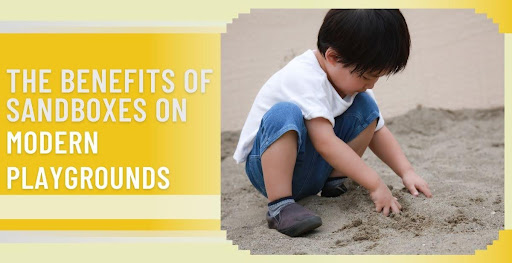
.jpeg)
.jpg)
.jpg)
.jpeg)
